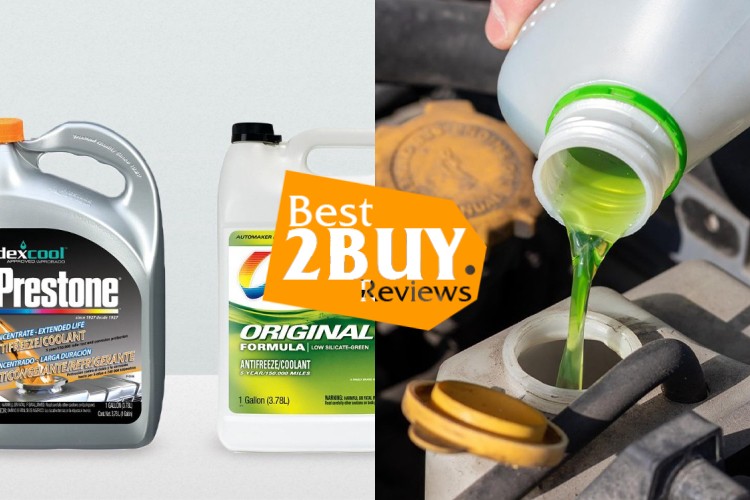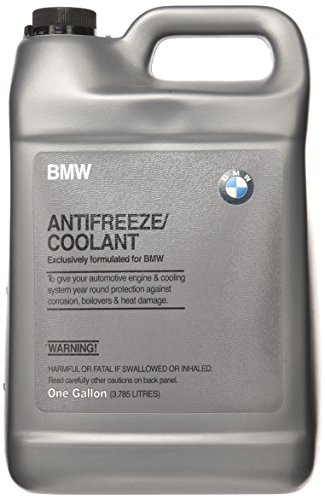How to Choose the Antifreezes & Coolants
Antifreeze and coolants are essential fluids used in heat transfer applications to ensure the temperature of a system remains within an optimal range. These fluids are commonly used in internal combustion engines and cooling systems to prevent both freezing and overheating.
- 1. What’s Antifreeze?
- 2. What’s Coolants?
- 3. What’s the Difference Between Antifreeze and Coolant?
- 3.1. Antifreeze
- 3.2. Coolant
- 3.3. Types of Antifreeze and Coolant
- 3.4. How to choose Antifreeze and Coolant?
- 3.5. Consult your vehicle's manual
- 3.6. Check the coolant type
- 3.7. Consider the climate
- 3.8. Check compatibility
- 3.9. Choose the right color
- 3.10. Consider longevity and maintenance
- 3.11. Quality and brand
- 3.12. Follow the mixing guidelines
- 4. In conclusion
What’s Antifreeze?
Antifreeze and coolants are substances used in automotive engines to regulate and maintain the temperature of the engine. They prevent the engine from overheating in hot weather conditions and from freezing in cold weather.
Antifreeze, also known as engine coolant, is a liquid typically made of a mixture of water and ethylene glycol or propylene glycol. It is usually colored to help identify leaks and distinguish it from other fluids in the vehicle. Antifreeze is used to lower the freezing point and raise the boiling point of the coolant mixture, providing protection against freezing in cold temperatures and preventing boiling and overheating in hot conditions.
In addition to its freezing and boiling point properties, antifreeze also contains additives that provide corrosion protection to the engine's cooling system. These additives help prevent the formation of rust, scale, and corrosion inside the engine, radiator, and other cooling system components.

What’s Coolants?
Coolants, on the other hand, are a broader category that includes both antifreeze and other substances used to dissipate heat from engines. While antifreeze is primarily designed for temperature regulation, coolants can also incorporate additives for lubrication, cleaning, and maintaining the overall efficiency of the cooling system.
It's important to regularly check the coolant level and condition in your vehicle and replace it according to the manufacturer's recommendations. Mixing different types of coolant or diluting it with water beyond the recommended ratio can compromise its performance and lead to cooling system issues. If you're uncertain about the type or ratio of coolant to use, it's best to consult your vehicle's owner's manual or seek advice from a qualified automotive professional.
What’s the Difference Between Antifreeze and Coolant?
The terms "antifreeze" and "coolant" are often used interchangeably, but there is a slight difference between the two.
Antifreeze
Antifreeze is a type of coolant specifically designed to lower the freezing point of the liquid in the engine's cooling system. It is typically made of a mixture of water and either ethylene glycol or propylene glycol. Antifreeze prevents the coolant from freezing in cold temperatures, ensuring that the engine doesn't suffer damage due to ice formation. It also raises the boiling point of the coolant to prevent overheating.
Coolant
Coolant is a broader term that refers to any substance used to regulate and maintain the temperature of an engine. While antifreeze is a type of coolant, not all coolants are antifreeze. Coolants can be either liquid or gas and are used to dissipate heat from the engine, preventing it from overheating. They also provide corrosion protection to the engine's cooling system.
In summary, antifreeze is a specific type of coolant that prevents freezing, while coolant refers to any substance used for temperature regulation and heat dissipation. Antifreeze is a vital component of coolant, especially in regions with cold climates, as it prevents the coolant from freezing and damaging the engine.
Types of Antifreeze and Coolant
There are many different types of antifreeze and coolants, such as water, glycols, and oils, with ethylene glycol being the most popular type used in automotive applications. To get the best deals on antifreeze.
How to choose Antifreeze and Coolant?
When choosing antifreeze and coolant for your vehicle, there are several factors to consider. Here are some guidelines to help you make the right choice:
Consult your vehicle's manual
The first step is to refer to your vehicle's manual or consult with the manufacturer to determine the specific type of coolant recommended for your vehicle. Different vehicles may have different requirements, and it's essential to follow the manufacturer's guidelines.
Check the coolant type
Coolants are available in various formulations, such as ethylene glycol-based and propylene glycol-based coolants. Ethylene glycol is more commonly used and provides excellent heat transfer and freeze protection. Propylene glycol is less toxic and considered safer for pets and the environment, but it has slightly lower heat transfer properties. Ensure you choose the type that is compatible with your vehicle.
Consider the climate
The climate in your region is an important factor to consider. If you live in a colder climate with freezing temperatures, you'll need an antifreeze with adequate freeze protection. On the other hand, if you live in a warmer climate, a coolant with excellent heat transfer properties becomes crucial.
Check compatibility
It's essential to select a coolant that is compatible with your vehicle's cooling system components. Look for a coolant that meets the specifications outlined by your vehicle's manufacturer. Avoid mixing different types of coolants, as this can lead to chemical reactions and potential damage to the cooling system
Choose the right color
Coolants are often available in different colors, such as green, yellow, orange, or pink. The color typically indicates the type of coolant and its additives. Again, refer to your vehicle's manual to determine the appropriate color or type recommended.
Consider longevity and maintenance
Some coolants are marketed as "long-life" or "extended-life" coolants, which offer extended service intervals before needing replacement. These types of coolants may be more convenient but often come at a higher cost. Consider your preference for maintenance schedules and weigh the benefits accordingly.
Quality and brand
Opt for a reputable brand of coolant that meets industry standards and has a good reputation. High-quality coolants are formulated with corrosion inhibitors and additives that protect the cooling system from rust, scale, and cavitation.
Follow the mixing guidelines
If you're adding coolant to your vehicle or performing a coolant flush, be sure to follow the manufacturer's instructions regarding the proper dilution ratio or pre-mixed coolant. Improper mixing can affect the performance and protection offered by the coolant.
Remember, it's always best to consult your vehicle's manual or seek advice from a trusted mechanic or dealership to ensure you choose the right antifreeze and coolant for your specific vehicle.
In conclusion
Antifreeze and coolants are essential automotive fluids that are used to keep engines running at optimal temperatures.. To ensure your engine is running smoothly and to extend its life, it is important to choose the right type of antifreeze-coolant for your car. For a variety of options, visit our featured section. Top Antifreeze and coolants are product which user and expert appreciate and 9reveiws.net believe that it will make you satisfied. Happy choosing!










